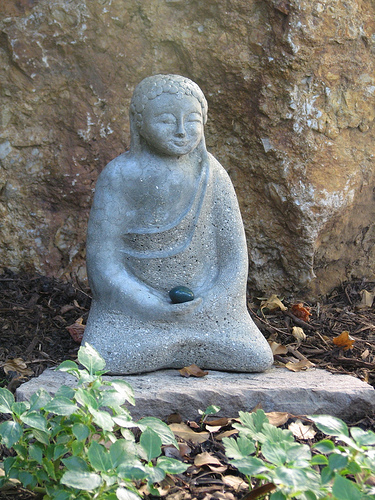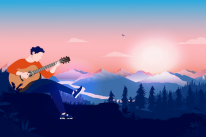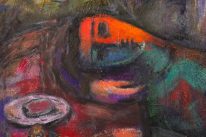“Information is not knowledge.” -Einstein
It’s an interesting time to be a publisher. Before magazines had online counterparts, choosing articles to feature was a much more selective process, as there was no need to solicit more pieces than you could feasibly fit in an issue.
Now that page views are dollars, quality hasn’t necessarily become less important, but publishers are certainly more focused on providing more to readers—more links to click on, more posts to tweet, and more places to get involved in conversations.
Recently, I’ve received a few requests from larger sites asking if I’d like to participate in content share programs—meaning they’d republish Tiny Buddha posts to keep readers on their sites, and I could do the same with their content to keep readers here.
I realize that larger publishers have greater needs, since they have a product to sell and employees to pay. But still, I can’t help but feel that providing content readers could find elsewhere solely to increase page views—particularly when it’s related to personal development or happiness—somehow misses the point.
I’d even go so far as to say it’s contrary to the intention, since we’re generally happiest when we read what we need and then focus on applying what we’ve learned (as opposed to continually searching for more answers outside ourselves).
Still, I think the new era of information overload provides benefits as well as challenges. For one, it gives us countless opportunities to practice choosing what information we simply don’t need.
Conventional wisdom says that knowledge is power, which implies that the more we learn, the better equipped we are to make positive changes in our lives and the world. But sometimes not needing new information is power.
There is power in knowing when to stop reading and start doing. There is power in learning to recognize when you actually need guidance, and when you’re seeking answers solely to avoid doing what you know in your heart is right. There is power in learning what to tune out and what to allow in.
The web will continue to grow, and more and more sites will compete for our attention. This means we have countless opportunities to practice using information instead of letting information use us, and limitless chances to expand our awareness instead of focusing on learning more.

Photo by Big Mind Zen Center
About Lori Deschene
Lori Deschene is the founder of Tiny Buddha. She started the site after struggling with depression, bulimia, c-PTSD, and toxic shame so she could recycle her former pain into something useful and inspire others to do the same. You can find her books, including Tiny Buddha’s Gratitude Journal and Tiny Buddha’s Worry Journal, here and learn more about her eCourse, Recreate Your Life Story, if you’re ready to transform your life and become the person you want to be.
- Web |
- More Posts













 Though I run this site, it is not mine. It's ours. It's not about me. It's about us. Your stories and your wisdom are just as meaningful as mine.
Though I run this site, it is not mine. It's ours. It's not about me. It's about us. Your stories and your wisdom are just as meaningful as mine. 